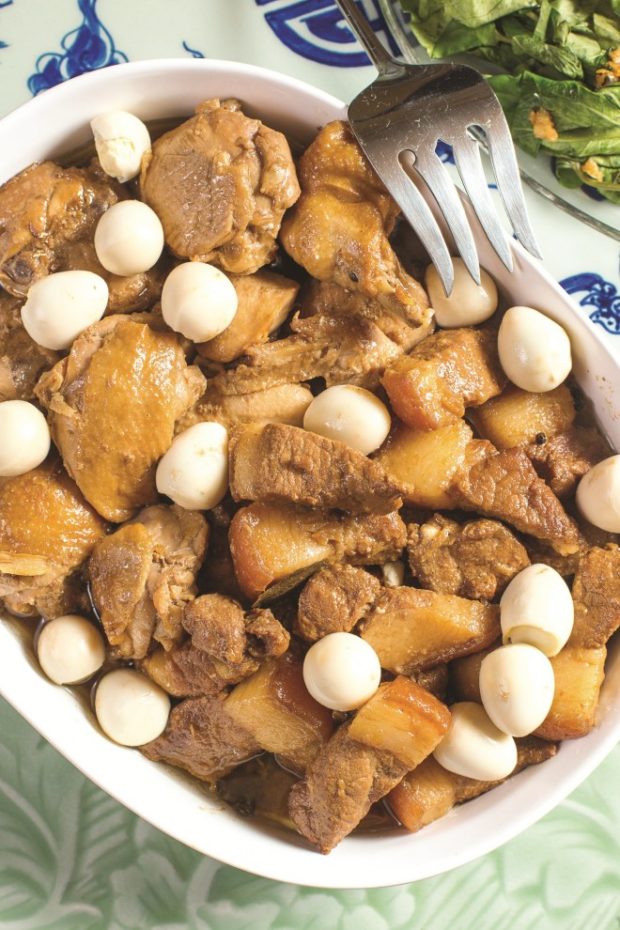DTI says standardizing Philippine adobo only for international promotion
MANILA, Philippines — The Department of Trade and Industry only sought to distinguish the “basic traditional recipe” for adobo that can be promoted abroad, and not to mandate Filipino households to follow just one standard of cooking the beloved Filipino dish.
DTI Secretary Mon Lopez said in a public briefing that the move was meant to guard the Philippine adobo from other countries that may also lay claim to the pioneering adobo.
“Alam niyo naman pag abroad, sasabihin ng iba may Mexican Adobo. May iba-ibang [version]… baka may umangkin pa ng ating Philippine adobo. So kailangan po meron tayong i-promote. At yan ay ginagawa ng ibang bansa, meron silang traditional recipe,” he said.
(You know, abroad, there will be people who will say there’s Mexican Adobo. There are many versions of adobo. We just don’t want others to claim our Philippine adobo, so we need to promote a basic traditional recipe. Other countries are also doing that, they formulate their own traditional recipe.)
Adobo gets its roots from the Spanish “adobar,” which means to marinate, usually in soy sauce and vinegar.
The Bureau of Philippine Standards (BPS), which is under the DTI, earlier formed a committee to come up with a “national standard” for native viands such as adobo and other popular Filipino favorites as “sinigang” (sour stew), “sisig” (chopped pork with onions, chili, usually served on a hotplate), and lechon (roasted pig).
The process will take into consideration the different ways to cook the dish across the country, the bureau said.
But during the briefing, the DTI insisted that the agency will not tinker with the local standards in cooking these dishes that the countries would like to promote abroad.
“Hindi po standard ang pinaguusapan dito kung hindi kung ano lamang ang basic traditional recipe… para lang may basic traditional recipe na ipo-promote pagka-abroad… Hindi po mandatory. Dahil alam naman natin, pag tinanong mo ang lahat dito, lahat sasabihin nila ‘Yung masarap na adobo yung luto sa bahay namin,” he said.
(We are not talking about a standard but instead we want to have a basic traditional recipe that we can promote internationally… This will not be mandatory. Because we know, if you ask everyone here, they will say the best tasting adobo is the one cooked in our home.)
“Hindi po natin ini-istandard na isang timpla. Hindi naman ho mandatory ‘yan, ano lang ho yan, para may basic traditional recipe para pag prinomote abroad, merong tinatawag na Philippine adobo,” he added.
(We will not standardize the recipe. This will not be mandatory, we’re doing this because we want to have a basic traditional recipe we can promote abroad, the so-called Philippines adobo.)
